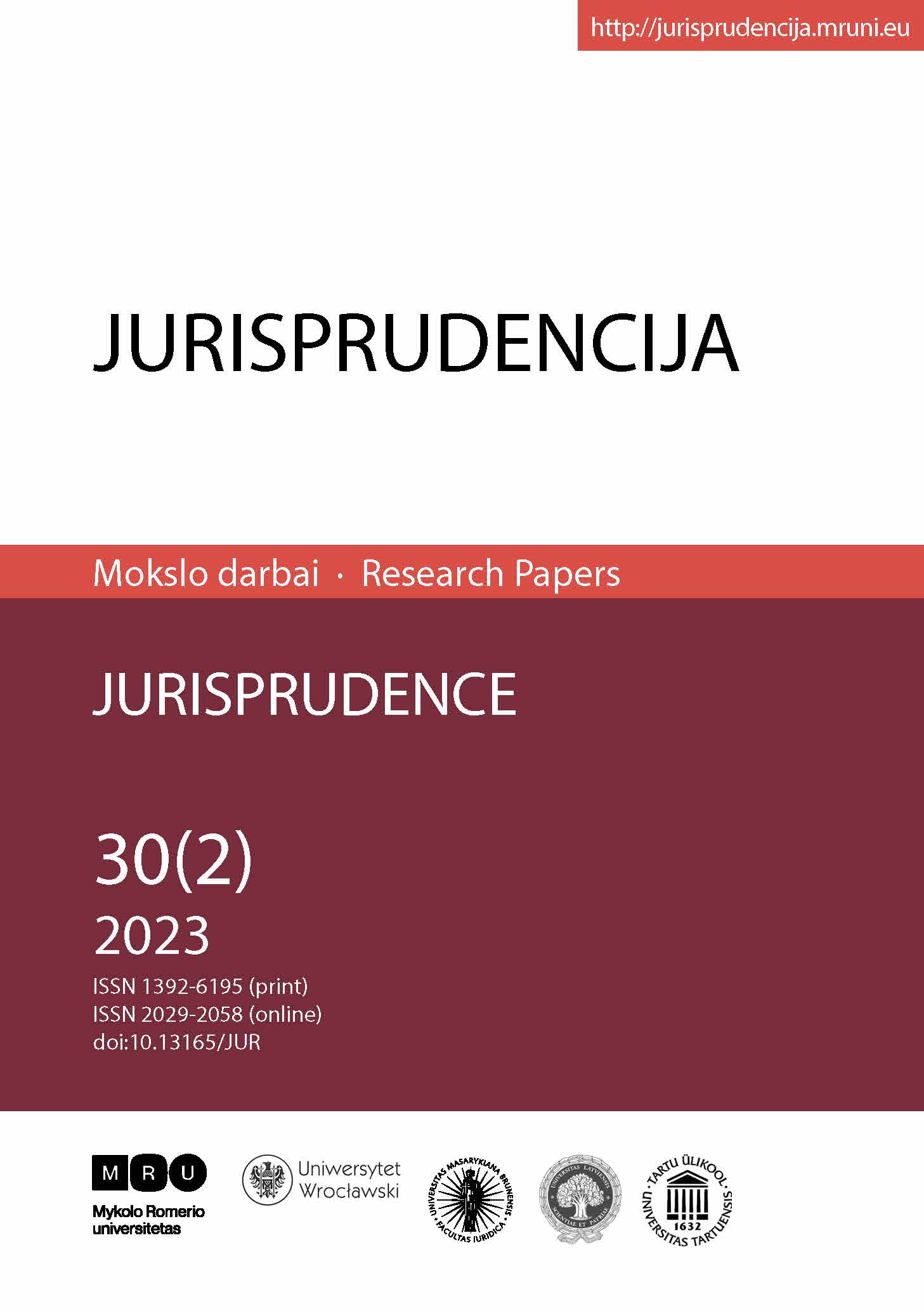TEISĖJŲ KOLEKTYVINIŲ DARBO TEISIŲ ĮGYVENDINIMO
YPATUMAI
FEATURES OF THE IMPLEMENTATION OF JUDGES’ COLLECTIVE RIGHTS
Author(s): Rytis KrasauskasSubject(s): Social Sciences, Law, Constitution, Jurisprudence
Published by: Mykolas Romeris University
Keywords: legal status of judges; social partnership; collective rights of judges; collective representation of judges; professional organizations of judges; judges’ right to strike
Summary/Abstract: Judges have basic collective rights, i.e., they, being represented by duly authorized professional organizations, have the right to participate in social partnership processes, including the right to initiate a collective labor dispute for their interests and the right to strike. In order to fully realize these rights, judges must ensure adequate representation of their interests, so they are offered the ability to adjust the statutes of already operating professional organizations of judges or to establish a trade union of judges. The specifics of the social partnership in which judges participate are determined by the specifics of their legal status. When judges’ representatives combine their work, social and economic interests to the extent that they are related to the need for additional budget allocations, the employer is represented in the broadest sense by the Government of the Republic of Lithuania or an institution authorized by it. The interests of judges, which are not related to the need for additional budget allocations, can be combined (i) by the participation of judges in the General Meeting of Judges, and in the meeting of judges of the specific court where the judge performs their duties, and (ii) by the duly authorized professional organizations of judges negotiating with the Council of Judges in the areas where the latter fulfils the duties of the employer’s representative. The competence of the Council of Judges includes, among other things, the representation of judges’ work, social and economic interests; therefore, in order to achieve the most favorable result for judges in this area, effective cooperation between the Council of Judges and professional organizations representing judges should be aimed for in this area.
Journal: Jurisprudencija
- Issue Year: 30/2023
- Issue No: 2
- Page Range: 345-359
- Page Count: 14
- Language: English, Lithuanian

